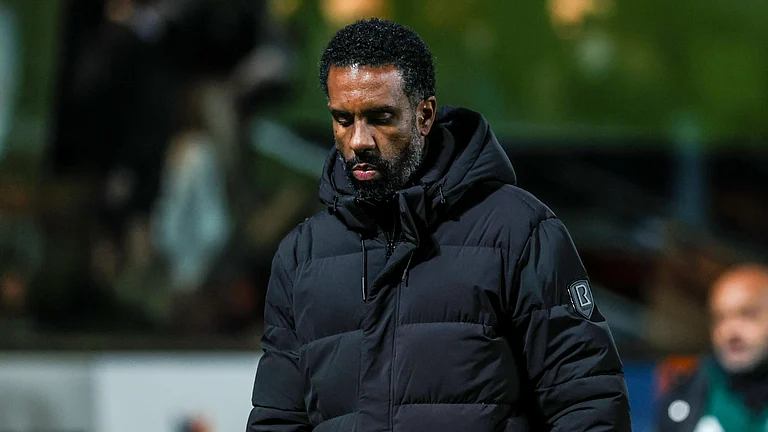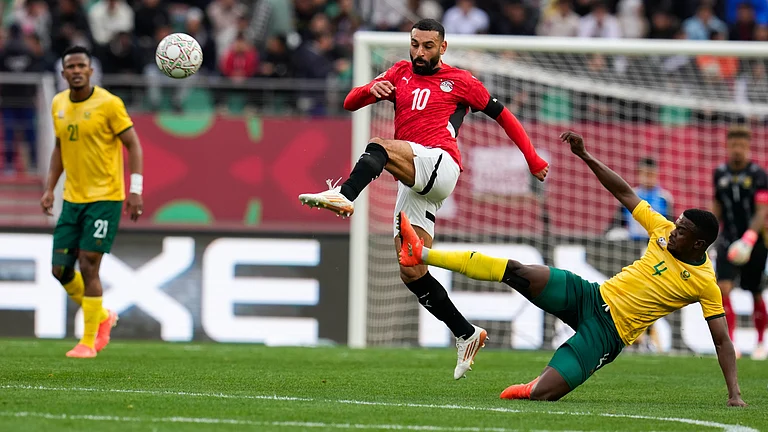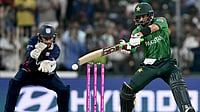Aberdeen have claimed VAR is having a negative impact on Scottish football after discovering officials effectively “guessed” that their stoppage-time winner at Livingston should be disallowed following a technical failure. (More Football News)
The Dons saw their hopes of a cinch Premiership top-six finish disappear when Bojan Miovski’s goal was disallowed for an offside against Angus MacDonald in the build-up.
The talks revealed the video assistants were unable to calibrate the lines because of a camera failure, instead freezing the footage to determine by eye, as is allowed by the VAR protocols. Video assistant Matthew MacDermid decided MacDonald was offside.
The SFA later produced retrospective footage to prove the right decision had been made in the end.
An Aberdeen statement read: “The Scottish FA accepted there is no conceivable way the VAR could tell definitively the deepest position of Livingston midfielder Daniel McKay’s body, because from the only angle available – the 18-yard box camera on the Main Stand side – the lower half of McKay’s body is completely obscured from view, blocked by other players.
“Even if his full body was visible, it’s impossible to determine who was closest to the goal line with no on-pitch ‘markers’.
“Therefore, it was acknowledged by all in attendance at the meeting that the VARs had to effectively guess on what that position might have been based on the limited information available to them, and that was the basis on which to overrule the on-field call of the assistant referee, who did not raise his flag.
“It is our strong belief that in such an instance, and for the integrity of the game, the match officials should stick with their original on-field decision without the strength of evidence to overturn that and essentially re-referee the passage of play.
“This course of action was chosen ahead of asking the referee himself to look at the freeze frame and make a determination, which is permitted under the protocols when it’s a matter of opinion rather than factual, or more appropriately, in absence of a definitive outcome from the camera, sticking with the on-field decision, and giving the benefit of the doubt.”
The club added: “What this situation demonstrates, in our opinion, is that the version of VAR that Scottish football has, or more accurately, can afford, is not suitable for the purpose in which it is intended.
“It perfectly highlights the limitations in the technology, the inappropriate implementation, the consistency of decision-making, and the negative impact on the overall experience for the match-going supporter.
“This is, of course, not an issue that we believe is in any way exclusive to Aberdeen FC.
“We are not being partisan because we believe a decision, or at least a process, has not been at all effective at the weekend.
“We acknowledge there have been occasions where we ourselves have been fortunate to have benefitted from some of the observations and limitations raised.”
Aberdeen pledged to continue playing an active role in the ongoing review of VAR’s use in Scotland and try to improve the output.
They added that they did not believe VAR is “enhancing the game in this country”.
The SFA later stated that Hawkeye’s review confirmed that the relevant camera had suffered a “loss of calibration”.
A statement added: “During the review, Hawkeye were able to reprocess the data through their system and draw the calibrated offside lines from the disallowed goal, which showed Angus MacDonald to be in an offside position.
“The VAR made the decision using the technology that was available and this decision was validated by Hawkeye’s retrospective recalibration conducted as part of their review.”




























